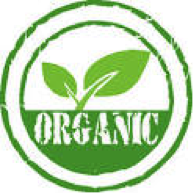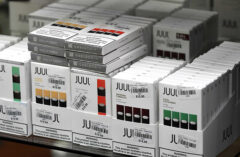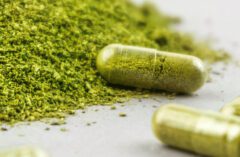Table of Contents
Last Updated on February 10, 2016 by
Spinfuel’s Guide To Vaping : Terminology To Understand The E Liquid Industry
This week I am covering some of the different terms as they apply to our industry. We receive constant emails asking for clarification on how to tell what is really in an e-liquid. There are many terms used in advertising our products such as “premium” that simply imply how we represent our products. Then there are those that carry with them a guarantee of quality and purity, such as those listed below. If a manufacturer states that their product is “USP” for example, they should be able to present proof that it is.
USP Stands for US Pharmacopeial Convention
 USP offers a rigorous third-party verification program to help companies reach best practice quality management for drug substances used in the manufacture of drug products and demonstrate that their ingredients are of consistent high quality. USP experts provide participants with a good manufacturing practice (GMP) audit of manufacturing facilities and operations; a review of drug substance chemistry, manufacturing and controls (CMC) documentation; laboratory testing of drug substances for conformance to specifications; and ongoing change monitoring and surveillance.
USP offers a rigorous third-party verification program to help companies reach best practice quality management for drug substances used in the manufacture of drug products and demonstrate that their ingredients are of consistent high quality. USP experts provide participants with a good manufacturing practice (GMP) audit of manufacturing facilities and operations; a review of drug substance chemistry, manufacturing and controls (CMC) documentation; laboratory testing of drug substances for conformance to specifications; and ongoing change monitoring and surveillance.
The USP Verified Mark and What It Means
Ingredients that meet USP’s stringent requirements are awarded a Certificate of Standards Compliance and use of the USP Verified Pharmaceutical Ingredient Mark (above). The Mark can be used on the bulk label of each container of verified ingredients and on the accompanying certificate of analysis. The Mark provides assurance that the ingredient…
- is manufactured in accordance with internationally accepted GMPs for pharmaceutical ingredients;
- meets label and certificate of analysis claims for identification, strength, purity, and quality;
- meets acceptable limits for impurities and contaminants; and
- is consistent in quality from batch to batch.
- USP offers verification services for dietary supplement finished products, dietary ingredients and pharmaceutical ingredients.
- Products and ingredients that meet all USP verification requirements—including a GMP audit, product and ingredient testing, and manufacturing documentation review—are awarded use of the distinctive USP Verified Marks (pictured above). Participation is voluntary and available to manufacturers worldwide.
- USP’s verification services draw upon our experience setting federally recognized public standards of quality for medicines, dietary supplements, and foods. USP has been establishing standards since 1820, and, today our standards are used in more than 140 countries.
Pharmaceutical Grade
Pharmaceutical grade means that the product has been made under ”Good Manufacturing Practice” conditions and is safe, pure and effective. The product must be in excess of ninety-nine percent purity with no binders, fillers, dyes or unknown substances.
Fewer than 3% of the products on the market are pharmaceutical grade.
Food Grade
Food grade refers to the certified standards that qualify as fit for consumption or allowed to come in contact with food. In the United States food grades are set by the U.S Department of Agriculture (USDA) and the Food Safety and Inspection Service (FSIS). When a product is labeled as food grade it means that the processing and the packaging has been done with clean equipment and can be safely eaten by people. Food grade is considered to be a lesser grade than pharmaceutical.
Organic
 Produced or involving production without the use of chemical fertilizers, pesticides, or other artificial agents. Organic certification is a certification process for producers of organic food and other organic agricultural products. In general, any business directly involved in food production can be certified, including seed suppliers, farmers, food processors, retailers and restaurants.
Produced or involving production without the use of chemical fertilizers, pesticides, or other artificial agents. Organic certification is a certification process for producers of organic food and other organic agricultural products. In general, any business directly involved in food production can be certified, including seed suppliers, farmers, food processors, retailers and restaurants.
Requirements vary from country to country, and generally involve a set of production standards for growing, storage, processing, packaging and shipping that include:
- no human sewage sludge fertilizer used in cultivation of plants or feed of animals[1]
- avoidance of synthetic chemical inputs not on the National List of Allowed and Prohibited Substances (e.g. fertilizer, pesticides, antibiotics, food additives, etc.), genetically modified organisms, irradiation, and the use of sewage sludge;
- use of farmland that has been free from prohibited synthetic chemicals for a number of years (often, three or more);
- keeping detailed written production and sales records (audit trail);
- maintaining strict physical separation of organic products from non-certified products;
- undergoing periodic on-site inspections.
Certified organic- Put simply, if you see the “USDA Organic” or “Certified Organic” seal on your food, the item must have an ingredients list and the contents should be 95% or more certified organic, meaning free of synthetic additives like pesticides, chemical fertilizers, and dyes, and must not be processed using industrial solvents, irradiation, or genetic engineering, according to the USDA. The remaining 5% may only be foods or processed with additives on an approved list.
Organic Compliant- You can be organic compliant even if your product does not qualify for organic certification if you follow the above guidelines. For example, many plants are wild crafted, and would not fit into the guidelines for certification, but are quite organic.
KOSHER
Kosher is a Hebrew word that literally means “fit” or “proper.” When used in relation to food products, “kosher” means that the item in question meets the dietary requirements of Jewish law. To be certified Kosher, all ingredients in every product—and the process of preparing the product—must be certified for kosher-compliance too. Kosher certification, which is the guarantee that the food meets kosher requirements, revolves around these two criteria. Just as a kosher consumer would not borrow his non-kosher neighbor’s pots to use in his kitchen, non-kosher equipment cannot be used in the production of kosher foods. Studies repeatedly indicate that the consumer, when given the choice, will express a distinct preference for kosher certified products. They regard the kosher symbol as a sign of quality.
ORGANIC CERTIFICATION VS KOSHER CERTIFICATION
Both Organic certification and Kosher certification are based on values and beliefs that inform and create standards. The function of the Kosher certification or Organic certification agency is to insure strict compliance with these standards. Both Organic certification agencies and kosher certification agencies are staffed by individuals who are deeply committed to their respective values, beliefs and standards.
Organic certification is fundamentally concerned with the contamination of foods due to exposure to either chemicals or GMO’s in one form or another. This concern is rooted in the belief that these exposures are harmful to human health, the planet, and its eco-systems (I agree by the way).
Kosher certification, in the traditional sense of the term, is fundamentally concerned with foods conforming to the Biblical and Rabbinic tradition of Kosher dietary laws and any contamination or trespass that would compromise these laws – and hence integrity of the Kosher certified product.
Judy Henry
Judy Henry is the owner of Guilty Pleasures Organics. Judy appears twice a month in Spinfuel eMagazine bringing you important information you need to know about this thing we call “vaping”. With her wonderful staff of experts, Judy leaves no stone unturned while researching the real facts, and the truth, that so many are afraid to talk about.








